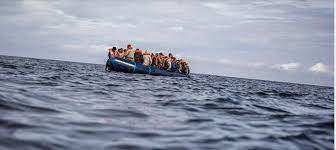Since January 2024, they have intercepted over 2,500 migrants attempting to reach Spain via the Atlantic Ocean.
The recent capsizing of a pirogue off the coast of Mbour, resulting in the tragic loss of 26 lives, underscores the risks associated with these perilous journeys. Despite these tragic events, the Senegalese Navy continues to intercept numerous migrants, demonstrating their unwavering commitment to preventing these dangerous crossings.
Throughout the year, the Senegalese Navy has conducted numerous operations to rescue migrants in distress. These operations have involved both large-scale interceptions and smaller-scale rescues, highlighting the persistent nature of migration attempts from the region.
The diversity of nationalities among the intercepted migrants, including Senegalese, Gambians, Guineans, Malians, and others, reflects the regional nature of the migration crisis. The report by Frontex, the European Union’s border agency, confirms the West African route as the busiest migration route to Europe.
In response to this ongoing challenge, the Senegalese government has been actively working with international partners to address the root causes of irregular migration and to provide safe and legal pathways for migrants. President Bassirou Diomaye Faye met with Spanish Prime Minister Pedro Sánchez in August to discuss cooperation on migration issues and explore ways to strengthen bilateral ties in areas such as agriculture, vocational training, and digitalization.
The collaboration between Senegal and Spain serves as an example of how countries can work together to manage migration flows effectively and promote orderly immigration. By addressing the underlying factors that drive irregular migration and providing safe and legal alternatives, it is possible to reduce the risks associated with these dangerous journeys and protect the lives of migrants.
AC/sf/lb/abj/APA


